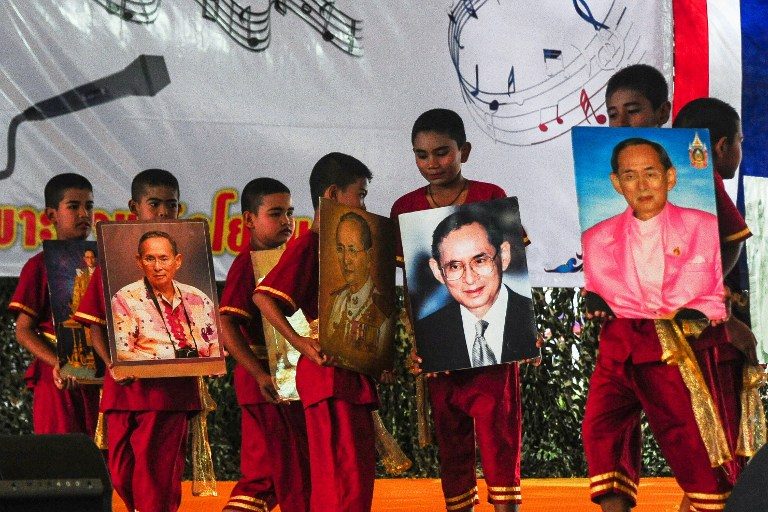SUMMARY
This is AI generated summarization, which may have errors. For context, always refer to the full article.

BANGKOK, Thailand – Doctors treating Thailand’s hospital-bound King Bhumibol Adulyadej placed the ailing monarch on a ventilator this week, the palace said Sunday, October 9, adding that the 88-year-old’s health was “not stable.”
Bhumibol is the world’s longest-reigning monarch and beloved by many in Thailand.
But he has not been seen in public for nearly a year as he battles a series of ailments in a Bangkok hospital.
Historically the palace has tightly controlled news about his health and it is difficult to ascertain his overall condition.
In recent months the palace has begun issuing more regular updates that point to a string of major health issues including renal failure.
Over the last two years he has also been treated for bacterial infections, breathing difficulties, heart problems, and hydrocephalus – a build-up of cerebrospinal fluid often referred to as “water on the brain.”
The latest statement issued by the Royal Household Bureau on Sunday evening said a ventilator was deployed after the monarch’s blood pressure dipped following procedures to prepare him for dialysis and to change a tube that helps drain fluid from his spine.
“The medical team are watching his symptoms and giving treatments carefully because the overall symptoms of his sickness are still not stable,” the statement said.
His reign has spanned 7 tumultuous decades and his frail health is a cause of great public concern for Thais, most of whom have never known life under another king.
He is also shielded by one of the world’s harshest royal defamation laws, which has been used to jail scores of Thais for criticizing the monarchy.
Analysts say anxiety over the end of Bhumibol’s reign has aggravated the past decade of political conflict in Thailand, with elites jostling for influence.
But open discussion of his legacy and the future of the institution is all but impossible because of the lese majeste law.
Use of the law has surged under the ultra-royalist generals that seized power in a 2014 coup. – Rappler.com
Add a comment
How does this make you feel?
There are no comments yet. Add your comment to start the conversation.